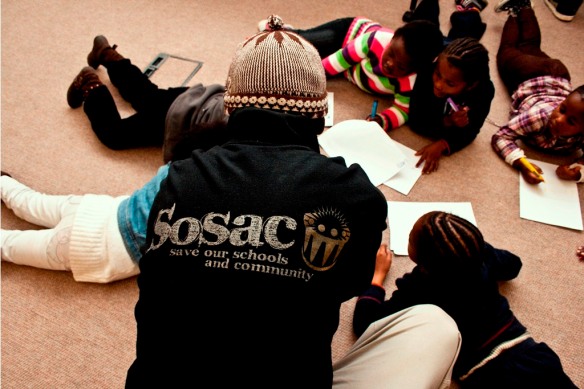A VISION FOR EDUCATION: BEYOND NUMBERS AND MARKS – TOWARDS REAL EQUALITY
South Africans agree that quality education is fundamental to the future of this country and its children. 
But South Africans do not yet have a concrete vision for what kind of education system can rebuild a society that has been under great trauma and is still faced with tremendous inequality.
The Department of Basic Education has put forward a vision called Schooling 2025 – you can find the vision here – http://www.education.gov.za/Curriculum/Schooling2025/tabid/401/Default.aspx
Although this is a commendable vision, it only spells out the basics of what a mass education system should do at the least.
In reality, mass education systems are going to have to transform in ways we may not have even begun to conceptualise to deal with the dynamic, ever-changing global economy.
Traditional mass education was the child of the Industrial Revolution; the preparation for a factory economy.
Is it still relevant in its current form for a global society faced with massive declines in production in certain parts of the world as well as the rapid development world of digital technology?
Add to this the ecological conundrums human civilisation faces as we realise that we can no longer sustain traditional models of mass production and consumption.
We need new ideas.
Shouldn’t our education vision go beyond ‘basics’ and ‘minimums’ and begin to ask what sort of society, economy, politics, community, it can actively contribute towards building?
In 2025, what will the world look like and does the current education model even begin to work in that reality? What about 2050?
In this view of Schooling 2025 the author argues that homework is not essential to good performance – http://mg.co.za/article/2010-08-27-time-for-a-debate
Take a look at the Department of Basic Education’s Vision and add your own comments.
[Click here for longer document http://www.info.gov.za/view/DownloadFileAction?id=135307 ]
SCHOOLING 2025 STATES:
- Learners who attend school every day and are on time because they want to come to school, the school is accessible and because they know that if they miss school when they should not, some action is taken. These learners understand the importance of doing their schoolwork, in school and at home, and they know their school will do everything possible to get them to learn what they should. Much learning happens through the use of computers and from Grade 3 onwards all learners are computer literate. Part of the reason why learners want to come to school is that they get to meet friends in an environment where everyone is respected, they will have a good meal, they know they can depend on their teachers for advice and guidance, and they are able to participate in sporting and cultural activities organised at the school after school hours.
- Teachers who have received the training they require, are continuously improving their capabilities and are confident in their profession. These teachers understand the importance of their profession for the development of the nation and do their utmost to give their learners a good educational start in life. They are on the whole satisfied with their jobs because their pay and conditions of service in general are decent and similar to what one would find in other professions.
- A school principal who ensures that teaching in the school takes place as it should, according to the national curriculum, but who also understands his or her role as a leader whose responsibility is to promote harmony, creativity and a sound work ethic within the school community and beyond.
- Parents who are well informed about what happens in the school, and receive regular reports about how well their children perform against clear standards that are shared by all schools. These parents know that if something is not happening as it should in the school, the principal or someone in the Department will listen to them and take steps to deal with any problems.
- Learning and teaching materials in abundance and of a high quality. The national Minimum Schoolbag policy, which is widely understood, describes the minimum quantity and quality of materials that every learners must have access to. Computers in the school are an important medium through which learners and teachers access information.
- School buildings and facilities that are spacious, functional, safe and well maintained. Learners and teachers look after their buildings and facilities because they take pride in their school.
[SCHOOLING 2025 ENDS]

I fully agree, children need good education to reach their full potential and grow up with confidence and self-respect. I must add that the list of needs should include a way of supporting their sexual development whereby young teenagers are encouraged to look after their babies at home or at school for at least a year, and then return to the system unpenalised or shamed. This will allow the babies of school-going children to stay with their mother and be breastfed exclusively for 6 months, significantly lowering their mortality rate. Breastfeeding should continue at least up to age 2, according to the World Health Organisation. There are way too many babies abandoned to the care of family members as education is seen as more important being a mother to a new baby. Can the education system work out a way of respecting the rights of the baby to life and health and a present mother while also successfully educating our children?